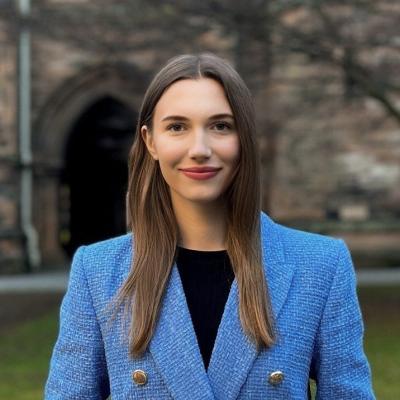Podcast
Twitter Space: Turkish Delight: New Diplomacy?

Live from Odessa, Yevgeniya Gaber, Non-Resident Senior Fellow, Atlantic Council & Center in Modern Turkish Studies at the University of Carleton, speaks with Roger Hilton to assess the legitimacy of Turkey’s new westward diplomacy, the future of bilateral relations between Ankara and Moscow, the chances of solving the Cyprus dilemma, and if Turkish diplomacy might consider BRICS a more long-term attractive option than partnering with the west.
Listen to the full episode below.
What are the episode’s key takeaways?
The impact of Erdoğan’s re-election
- The pre-election period has demonstrated Turkey’s deviation towards further cooperation with Russia, reinforced by increased anti-Western rhetoric. Since securing victory, President Erdoğan has reset Turkey to its traditional default foreign policy settings which blends beneficial cooperation with the west and diverse diplomatic relations internationally, most recently with the Gulf countries.
- The primary reason driving Turkey’s shift westward is the securitization of new foreign direct investment and goal to create a better and more predictable investment climate to restore confidence in the Turkish market.
- As a status quo power, Turkey endeavors to uphold regional stability while actively pursuing partnerships that benefit its national interests.
Ankara's Westward tilt
- Turkey wants to be an autonomous player and assert its own agency in the international arena. Its relationship with the West is thawing, but the message stays clear: Russia will remain an important partner as long as needed, primarily in economy and energy.
- While enhancing its efforts for a more dynamic dialogue with the US and EU, Turkey is actively exploring potential diverse partnerships elsewhere by building new defense partnerships. These include the biggest defense export deal in Turkey’s history with Saudi Arabia, costing more than $3 bn. Turkey is also preparing to host the Chinese Minister of Foreign Affairs in the upcoming days and the President of Russia later in August.
- The potential of Turkey’s cooperation with BRICS is rather low and cannot be compared to Turkey-EU relations in terms of economic gains. Decoupling from the Western alliance will likely entail major economic losses for Turkey.
- Turkey’s EU membership bid is still hanging in the air. Ankara is seen rather as a privileged partner outside of the Union than a part of it. Possible alternative solutions would be the modernization of the EU-Turkey Customs Union, visa liberalization, and assistance with the refugee deal, particularly valuable ahead of the Turkish local elections in 2024.
NATO’s Vilnius Summit
- Turkey’s eventual endorsement of Sweden’s bid to join NATO was expected among the experts. The country used its leverage over the decision to advance its interests, such as the issue of countering terrorism, obtaining F-16 modernizing kits and possibly the fighter jets themselves.
- Turkey’s support for Ukraine’s NATO membership, is a sign of continuity as their support for NATO membership enlargement including with Georgia is long-standing. Though Turkey avoids direct confrontation with Russia, it seeks to deter Russian increasing military build-up in the region. Ukraine, backed by other NATO allies, plays a key role in this.
- The evolving defense cooperation between Turkey and Ukraine has been particularly dissatisfying for Kremlin, notably the news that Bayraktar drones will be built in Ukraine, and the military and technical cooperation will only grow deeper as the two countries signed an MoU on cooperation in strategically important industries during President Zelenskyy’s recent visit to Istanbul.
- The security of the Black Sea region is crucial for Turkey, which in this case, sees Russia as a rival rather than an ally when it comes to advancing national interests.
Ties with Russia
- Russia’s influence and outreach in Turkey remains prominent and was especially on display before the elections earlier this year.
- Despite the intense deepening of economic relations between Turkey and Russia, the EU remains the country’s largest and more important economic partner that dwarfs Russia’s current investment that has increased since its invasion of Ukraine.
- Turkey's diverse partnership with Russia including visa-free travel and advantageous business relocation regulations, as well as the refusal to join economic sanctions against Moscow remains an obstacle to better bilateral relations with the west but is a position that Ankara will not change in the future due to its multiple benefits it yields.
- The recent mutiny in Russia has shown that Putin’s grip on power is dwindling and that the Kremlin is no longer as credible as it once was. By extension for Ankara this means Moscow can no longer dictate, or enforce, its will on other countries with the same authority it did in the past. This presents an opportunity for Turkey to capitalize on in various domains.
- Given the events of 2016, the issue of coups is rather sensitive to President Erdoğan who still supports Putin as the legitimate ruler but who is wounded and not as powerful.
Future of the grain deal
- The proposed policy of Turkish ships escorting Ukrainian grain shipments in the Black Sea is not worth the risk of engaging in a direct confrontation with Russia, according to Ankara.
- A new grain deal is not a sustainable solution when it comes to helping Ukrainian agricultural products get to market. Although the past model helped to partially unblock seaports in Ukraine, it has evolved into a form of leverage for Russia to weaponize hunger and blackmail the West vis-à-vis the current sanction regime.

